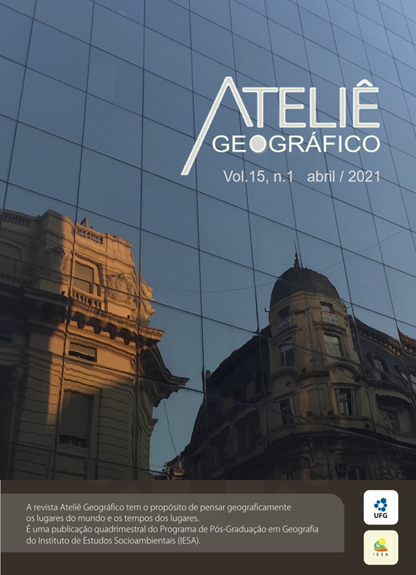Tourist satisfaction: an analysis of tourists visiting historic centres in Portugal
DOI:
https://doi.org/10.5216/ag.v15i1.65756Resumo
Achieving tourist satisfaction is one of the main goals of destinations, companies and managers in the field of tourism. To better understand this key concept, we have studied other associated constructs that we call antecedents and consequences, such as tourist motivations, quality of experience and loyalty to the destination. It was decided to achieve the proposed goals by conducting questionnaire surveys with non-resident tourists in Portugal over the three high tourist season months, which are regarded as June, July and August. The sample was collected in five of Portugal’s main historical centres, namely, Porto, Coimbra, Lisbon, Évora and Faro. With this study it was possible to confirm that the level of satisfaction of tourists, who visit historic centers in Portugal, is very high. It was also possible to verify the existing connection between the various constructs developed in the research, through the hypothesis test.
Keywords: Tourist satisfaction; Tourist motivations; Quality of the experience; Loyalty to the destination.
Downloads
Downloads
Publicado
Como Citar
Edição
Seção
Licença
Autores que publicam nesta revista concordam com os seguintes termos:- Autores mantém os direitos autorais e concedem à revista o direito de primeira publicação, com o trabalho simultaneamente licenciado sob a Licença Creative Commons Attribution que permite o compartilhamento do trabalho com reconhecimento da autoria e publicação inicial nesta revista.
- Os autores não serão remunerados pela publicação de trabalhos na Revista Ateliê Geográfico. Além disso, os conteúdos publicados são de inteira e exclusiva responsabilidade de seus autores, ainda que reservado aos editores o direito de proceder a ajustes textuais e de adequação às normas da publicação.
- Autores têm permissão e são estimulados a divulgar seu trabalho online (ex.: em repositórios institucionais ou na sua página pessoal), já que isso pode gerar alterações produtivas, bem como aumentar o impacto e a citação do trabalho publicado (Veja O Efeito do Acesso Livre).


